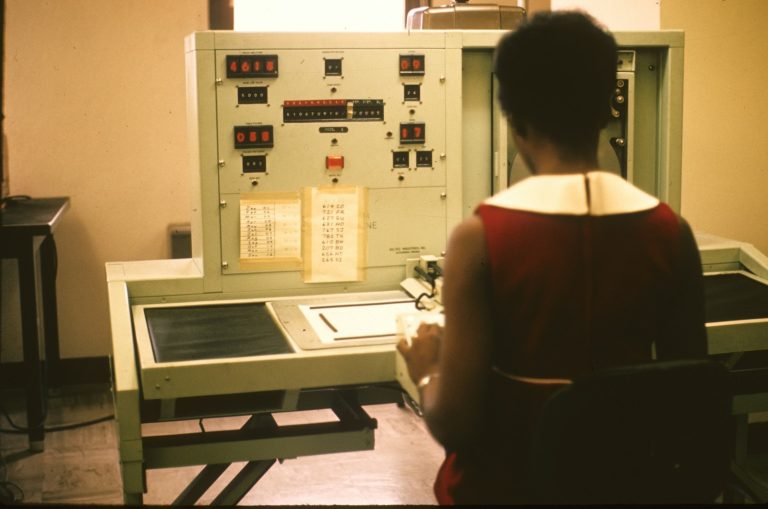Breaking Grounds with Sustainable Fashion in Africa

As sustainability takes center stage in every facet of life, I cannot help but think of the immerse opportunity Africa will have at the intersection of culture, sustainability, technology, innovation and fashion.
Africa’s fashion industry is uniquely positioned to lead the global shift towards sustainable fashion, given its rich cultural heritage, abundant natural resources, and burgeoning young creative talent. Sustainable fashion, which emphasizes environmentally friendly practices and social responsibility throughout the production process, offers Africa an opportunity to redefine the narrative around its fashion industry, from one of exploitation to empowerment, innovation, and sustainability.
Sustainable fashion in Africa if fully embraced will not just be a trend but a movement, deeply rooted in the continent’s tradition of using organic, locally sourced materials and artisanal craftsmanship. This movement aligns with global demands for fashion that respects both people and the planet, presenting significant growth opportunities for African designers, artisans, and entrepreneurs.
The Key Potentials of Sustainable Fashion in Africa
- Ethical Sourcing and Production: Africa’s wealth of natural fibers like cotton, silk, wool, and newer sustainable materials like bamboo and organic hemp offers a solid foundation for sustainable fashion. By harnessing these resources responsibly and ethically, African fashion brands can set new industry standards for sustainability.
- Artisanal Craftsmanship: Africa’s rich heritage in textiles and garment-making, characterized by traditional techniques like handweaving, embroidery, and beading, adds immense value to the sustainable fashion market. Artisanal craftsmanship not only ensures unique, high-quality products but also helps preserve cultural heritage and provides livelihoods for local communities.
- Innovation in Textiles: Africa is poised to become a hub for innovation in sustainable textiles, with research and development into eco-friendly materials and production processes. For instance, the use of natural dyes and the development of low-impact textile processing techniques can minimize environmental damage and promote sustainability.
- Circular Fashion Models: Embracing circular economy principles in fashion, such as designing for longevity, recyclability, and the efficient use of resources, can position Africa at the forefront of the global movement towards more sustainable consumption patterns.
Opportunities
The sustainable fashion industry in Africa has the potential to drive significant economic growth and job creation. By focusing on ethical sourcing, local manufacturing, and exporting sustainably made garments and textiles, the continent can tap into the growing global market for eco-friendly fashion. This not only boosts exports but also stimulates local economies by supporting small and medium-sized enterprises (SMEs) and artisan communities.
The sustainable fashion landscape is ripe for innovation, particularly in Africa, where the fusion of rich cultural heritage and a growing awareness of environmental and ethical issues offers a unique breeding ground for futuristic ideas. Here are some forward-thinking sustainable fashion concepts that could significantly impact the continent:
- Biofabrication in Textiles
Biofabrication involves using living organisms to create materials that are biodegradable and produced in an environmentally friendly manner. Africa could lead in developing textiles from biofabricated materials like microbial cellulose, algae, or mycelium (mushroom roots). These materials not only reduce the environmental footprint of fashion but also offer new textures and aesthetics for designers to explore.
- Solar-Powered Wearables
Integrating solar technology into clothing offers a sustainable way to generate renewable energy. Imagine lightweight, flexible solar panels woven into fabrics that can charge small devices or provide power in remote areas. This fusion of fashion and technology could position Africa as a pioneer in wearable tech, promoting both sustainability and innovation.
- Zero-Waste Pattern Making
The fashion industry is notorious for its waste, with traditional pattern making often leaving significant fabric offcuts. Zero-waste design involves creating patterns that use 100% of the fabric, eliminating textile waste at the design stage. African designers can lead in zero-waste designs, combining them with traditional African patterns and textiles to create unique, sustainable fashion pieces.
- Digital Fashion and Virtual Prototyping
Digital fashion involves creating and selling garments in digital formats, significantly reducing the physical resources needed for production, distribution, and storage. Alongside, virtual prototyping can drastically cut down on the waste associated with sample creation. By investing in digital design and 3D rendering skills, African designers can participate in the burgeoning market for virtual clothing and reduce their environmental footprint.
- Sustainable Dyeing Techniques
The dyeing process in the textile industry is a major source of water pollution. Futuristic sustainable dyeing techniques, such as using natural dyes from local plants or adopting waterless dyeing technologies, can mitigate these environmental impacts. Africa’s rich biodiversity offers a vast palette of natural dyes, which can also provide local communities with sustainable livelihoods.
- Circular Fashion Hubs
Establishing circular fashion hubs across Africa could revolutionize the industry’s approach to production and waste. These hubs would function as centers for the collection, recycling, and upcycling of textiles, transforming waste into new materials and garments. This model not only promotes sustainability but also fosters local entrepreneurship and innovation.
- Smart Textiles for Climate Adaptation
Developing textiles that adapt to changing environmental conditions can improve garment longevity and functionality. For example, fabrics that change their thickness based on temperature or that have water-repellent properties in rainy seasons can enhance the utility of clothing while reducing the need for fast fashion cycles.
- Ethical Fashion Incubators
Creating incubators and accelerators focused on ethical fashion startups can nurture the next generation of sustainable designers and entrepreneurs in Africa. These programs would offer mentorship, funding, and resources on sustainable practices, helping to elevate Africa’s position in the global sustainable fashion market.
Challenges and the Path Forward
Despite its immense potential, the sustainable fashion industry in Africa faces several challenges, including limited access to capital, inadequate infrastructure, and the need for skills development and market access. Overcoming these obstacles will require concerted efforts from governments, the private sector, and international partners to provide funding, build capacity, and foster an enabling environment for sustainable fashion enterprises to thrive.
Sustainable fashion represents a significant opportunity for Africa to leverage its rich cultural heritage, natural resources, and creative talent to build a more ethical, inclusive, and environmentally friendly fashion industry. The intersection of tradition, innovation, and sustainability presents fertile ground for Africa to redefine the global narrative of fashion. By embracing and investing in futuristic sustainable fashion ideas, Africa can lead the way in creating an industry that honors the planet and its people, setting a global benchmark for ethical and sustainable fashion.







